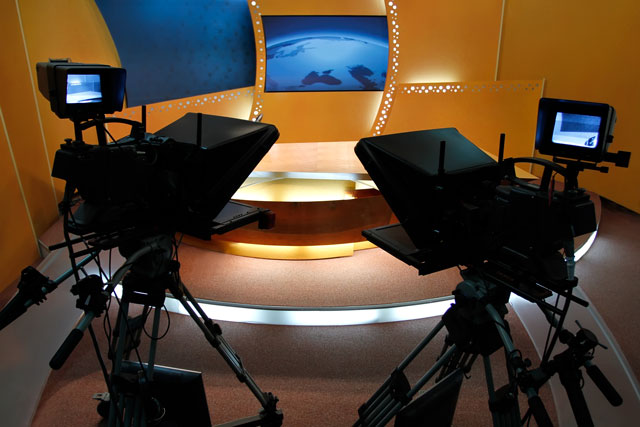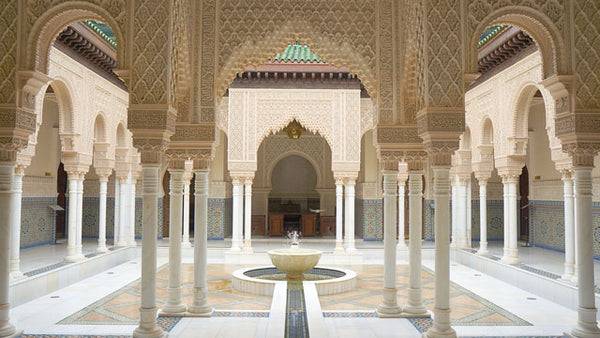The Arab Media in Britain

Ali Omar Ermes, Wednesday 7 July 2004
This is a copy of Ali Omar Ermes’ speech during the BRIMES Conference 2004 at SOAS.
Arab Media
Ladies and Gentlemen, before I begin, I would like to remind you that this is a multi-dimensional subject, filled with contradictory issues, concerning approx 300 million people, 22 nations and an anciently, enduring but remarkably modern language. Although in this short space of time, I will only give a general feel of the matter. During the late part of the 1970s, there were a few Arab media outlets such as Al Arab and Asharq al Awsat newspapers and Al-Majaleh magazine that started to appear but it is generally agreed upon that 1980s was the decade that witnessed the birth of the British Arab media.
And as a consequence of the Lebanese Civil war in 1976, the city of London became the key production centre for pan-Arab media. The opportunities that London provided were apparent; but this was not simply the outcome of the numerical concentration of Arabs in the capital; but one of the main factors that drew many Arab media organisations in large numbers, about 50 press media such as Al Arab, Al Quds, Asharq Al Awsat, Al Hayat newspapers, Arabia, The Middle East, Al Aalim magazines to name but a few, plus up to five satellite and radio stations including MBC, ANN and Spectrum and others, to London was the sense of presumed editorial freedom. Waheed Taweela (Media expert with the Arab League) has described it as freedom in the exterior outlines of politics and presentation of inappropriate contents on the screens.
Thus, this sort of freedom was restricted with many taboos such as criticising anything and anybody except so-called Western democracy and its tools of politicking society. Especially after 9/11, it has become difficult for Western and Arab journalists alike, to criticise the West, apart from the courageous few, most Western journalists assume, according to John Pilger the world should be seen in terms of its usefulness to the West, not humanity (The Progressive, Nov 2002).
However, I feel it is going to be very hypocritical to criticise so-called Third World rogue states while the West is committing the same and at times even worst acts towards the degradation of humanity. Guantanamo Bay and the Abu Ghraib prison as two very well-known examples demonstrating the point clearly. Another example includes the case of Ansar Mahmood, who has been in jail for the last two years without charge for taking a picture of autumn foliage in New York and as the Independent put it ‘Framed for taking a picture’ (Tuesday 15th June 2004).
There are more reasons as to why London was an ideal location for many Arab media headquarters, was its communication facilities, its access to news sources and the presence of many experienced workforces and expertise.
However, this trend is changing, with technological infrastructures developing in places like the Gulf and the impracticality of Londons high taxes and cost of living, the relative importance of London as the ideal production site for the Arab media is diminishing (although not totally), this and the fact that a more open media environment prevailing in the Arab world will induce these media institutions to return to the region.
There have already been examples of London-based Arab media institutions that have returned, including the return of the Lebanese newspaper ‘Al-Hayat’ to Beirut in 2000 and MBCs move to Dubai’s new ‘Media Free Zone’ in 2001, although MBC, Al-Jazeera and some others have representative offices in London, while some others, like Arabia and Al Alim and Tadhamin magazines among others, have stopped altogether due to high production costs.
The opportunities that places like Dubai offer are more than what London offered in the eighties and Beirut offered in the seventies. As well as a 50-year corporate personal tax exemption and 100% foreign ownership, Dubai Media City was launched with a promise and guarantee of freedom of expression, an attractive offer considering its proximity to the majority of Arab viewers.
With the subsequent return of pan-Arab media to the Middle East, questions arise as to how this will affect the quality of output as well as the attitudes of British Arabs. With the gradual return of pan-Arab media to the Middle East, British Arabs are left with very few media outlets; that may compel them to construct their own distinctive media.
The British Arab media in general, is characterised by its more independent and challenging approach, mixing at times between a Western-style of press inquiry and the Arab’s historical love of politics story-telling, has the ability to address an audience in local, national or trans-national spaces, what is referred to as a ‘Pan-Arab’ audience consisting of up to 300 million North African and Middle Eastern Arabs as well as the millions of Arabs and interested Arab specialists around the world.
The fact that their output is largely in the Arabic language and with the advent of new technologies, has made it possible to facilitate the transmission and consumption of information independent of distance. Therefore, as long as identity is clear, place of production is less important with the majority of it read/seen/heard in Middle Eastern cities like Cairo, Beirut or Riyadh, etc.
On the question regarding the degree of financial independence of the trans-national Arab media, with the exception of a very few, the majority of the Arab press is owned or backed by Arab regimes, while all Arab satellite channels are owned by Arab governments, with the exception of a few that are financially struggling. And with funding, political strings and agendas will surely follow.
For Arab media institutions, London has long served as the home to opposition and dissent as well as providing support and reflecting the interests of sponsoring states in the Arab World. Therefore, the British Arab media has the potential to work both to undermine and/or to enhance state power in the Arab world. Academic literature has argued that the trans-national character of the British Arab media has formed a cosmopolitan disposition, beyond the confines of a single nation, while others, like Christa Salamandra believes that the pan-Arab media has created new notions of Arabism and new arenas for local disputes and rivalries and reconstructed local identities.
One important benefit the British Arab media has for British Arabs is the preserving, restoring and advancing the use of the Arabic language in their midst through its constant use in newspapers, TV, and Radio. The British Arab media has also brought a great deal of investment and richness of people, culture, food, language and expertise to London, contributing to the city’s colourful blend of cultures and financial power. Another consequence of the Arab media operations to Arabs in Britain and in the Arab world is the extent to which satellite television (mainly through soaps and TV dramas) has introduced Arabic speakers to unfamiliar dialects and broken down some of the verbal barriers that characterise some regions, thus, strengthening ties between Arabs at the expense of expressional variety.
However, the use of the Arabic language in the British Arab media may fail to attract some younger audiences of British Arabs, who prefer to read their news in English, as well as limiting their readership and influence to those who are able to read the Arabic text.
One of the fundamental flaws that exist within the British Arab media is the lack of an effective media outlet for British Arabs in English, dealing with specific issues that affect Arabs in Britain. In this area, all Arabs, especially British Arabs, will dearly miss some of the pioneering English publications like Arabia magazine, which was effective and of a high standard but was forced to close down due apparently for financial reasons.
These particular characteristics of the British Arab media are of key importance for the role that it plays in processes of identity and community construction and for increasing or decreasing social exclusion and participation.
But….Does the Arab media encourage British Arabs to claim their rightful place in British society or has this media had the opposite effect?
The British Arab media serves as an alternative to the mainstream media in Britain that largely does not represent the Arab community or what is generally the case, misrepresents them. Many people will claim that the Arab media in London may help British Arabs to keep their previous cultural identity and hinder their adaptation.
I believe this is not generally the case, the British Arab media provide a sense of empowerment, confidence, and belonging, it acts as a powerful representative for the British Arab community to debate issues that are important to them and promote their interests, allowing them to become more capable to engage in positive integration with the wider society.
If there are any reasons as to why British Arabs failed to integrate into British society it certainly is not due to that reason, but because of various other social and political issues such as the intentions of some Arabs not to settle in Britain but to return to their motherlands or the hostility of the British media in general, Mr. Kilroy Silk is a recent example.
The British Arab trans-national media was one of the driving forces behind presenting Arabs with an alternative form of challenging and open political debate. The first major impact of new satellite technologies upon Arab media was also in the eighties with the satellite daily newspapers starting with ‘Al Sharq al-Awsat’, followed by ‘Al Hayat’, ‘Al-Quds’, ‘Al-Arab’ and others, that began satellite transmission from London to major population centres throughout the Arab world.
Unlike the majority of ethnic minority media that deal with ethnic local issues, these Arabic newspapers and their staff did and still do address themselves to a trans-national pan-Arab audience, regardless of location.
The rise of this ‘pan-Arab’ audience made possible through technological advances as mentioned, has allowed the reintegration of Diaspora Arabs into trans-Arab life and society. No longer detached from their homelands many Arabs living in the West read Arab newspapers (in print or on the internet), watch Arab television (there are over 50 Arabic satellite channels that are available in the UK) and actively seek out Arab sites on the internet.
Therefore, an Arab, regardless of his/her location, is gradually playing a more active role in modern Arab society. It is common to see/hear/read the significant contributions of many Western-based Arab intellectuals on Arab TV, radio or newspapers.
Among other reasons, it is their contributions that have facilitated a unidirectional system whereby the Arab world is more aware of the political and social mores of the West as well as their own.
During the late 1990s, with the increase in satellite television stations, a new kind of Arab public sphere emerged, bringing various local debates to the many Arab countries and the Arab Diaspora together in common and continuous public discussions. Al-Jazeera, an Arabic language news channel transmitted via satellite from Qatar that employs many of the former Arabic-speaking broadcasters of the BBC Arabic TV, was launched in 1996.
Many people believe that Al-Jazeera has in a way transformed the Arab political culture by its ability to shock the audience through controversial subjects, opposing opinions and heated arguments that make for good television.
It had pioneered a new media setting that has led other market-seeking Arab satellite stations to imitate it in order to compete amongst each other, it is interesting to note that the BBC is planning on reintroducing a new Arabic channel, financed by the Foreign Office, facing a 50/50 chance of success or failure pending on how fair and credible, in this a comparison to the American Al-Huraa comes to mind, which is not very successful. While Arab governments and Arab media institutions are compelled to increase their margins in freedom of politics and speech and review their media policies.
Many believe that Al-Jazeera has contributed to the integrity of the global media culture, challenging and transcending the dominance of the mainstream media with a credible alternative, by transforming the one-directional flow of information that was from North to South into a situation whereby it became the source of news and information to Western channels.
This might be partly so but, as long as the news industry is still dominated by a very few Western companies, then it is the Western agenda that will remain the main agenda on issues like politics, culture, finance etc, which the Arabs and others are obliged to read, watch and listen to.
So what is new? It is becoming apparent that with an increase in open political debates reinforced by the internet and the involvement of Arab intellectuals and reintegrated Western-based Arab intellectuals alike, the ‘pan-Arab’ audience has witnessed a rapid growth in available information, creating a more critical viewer that is less patient with merely accepting government rhetoric.
Even in political debates like the Arab-Israeli conflict and the Iraq war, Arab media outlets are no longer satisfied with a one-sided argument; Arab television has, on many occasions, given Israeli politicians and legislators an opportunity to voice their opinions on the Arab-Israeli conflict, a move that would be unheard of 20 years ago, although this is not likely to inspire the Israeli media to do the same.
The popularity this sort of open and interactive discussions provided by Arab satellite stations like Al-Jazeera, Al-Arabia and others is drawn from it’s ability to provide a safety valve to release public pressures and repression.
Some may say, with the absence of Western democracy, with its one-track-minded fix, on the region, these new media outlets are made more powerful by being one of the few areas where the trans-national Arab public are able to voice their opinions.
There is little doubt that, in the long term, an increase in a more open and independent trans-national Arab media will cause a social and cultural change in the Arab mentality and public opinion towards the acceptance and familiarity of concepts such as pluralism and discourse, but more evidence and research is needed to support this assumption.
One of the main aspects of the transnational Arab media is its ability to form an identity. The social and cultural effects of the transnational Arab media are possibly more influential than the political effects, despite the increase in political programmes and controversial dialogues. It is in the majority of the social and cultural output where the trans-national Arab media is failing the international Arab community.
The current Westernising, consumption-orientated culture and superficiality of most social and cultural Arab dramas and programmes are potentially causing an identity crisis, particularly among the Arab youth, as well as limiting programmes and magazines targeted at Arab women to food, drama and beauty. While the Western manufacturers love it, bombarding 300 million Arab men, women and children with a great deal of consumer variety from cosmetics to food to entertaining technology – the capitalists have never had it so good!
The trans-national Arab media is faced with the challenge in recovering the sense of pride in Arab and Islamic heritage and culture, but can only be brought about if those in charge are culturally aware as well as conscience of the sort of responsibility they possess.
On the other hand, as mentioned before, financial editorial and new source independence are basic ingredients for effective, just and balanced media and it is towards these ingredients where the future of British Arab and/or trans-national Arab media must progress.
………………………………………………………………………………………………
References:
Abdallah Scheifer (1998) Media Explosion in the Arab World: The Pan-Arab Satellite Broadcasters TBS Journal Fall 1998.
Christa Salamandra (2003) London‘s Arab Media and the construction of Arabness TBS Journal No. 10 Spring/Summer 2003.
European Media Technology and Everyday Life Network (EMTEL) Mapping Diasporic Minorities and their Media in Europe.
Jon Alterman (1999) Trans-national Media and Social Change in the Arab World TBS Journal No. 2 Spring 1999.
Marc Lynch (2003) Taking Arabs seriously Foreign Affairs, September/October 2003
Waheed Taweela New Media in the Arab World: The social and cultural aspect
Leave a comment
Also in VALUE ADDED THOUGHT

A Glimpse of Islamic Heritage
The slide show consisted of around 150 photographs, taken over the last 30 years by Ali Omar Ermes himself, each one showing an example of the vast heritage and history of Islam.

The Importance of Faith-based Education for the Muslim Community
Ladies and gentlemen, this is a big subject with a huge debate entailed. However, for your overwhelming good fortune and my relief, I can gladly tell you that this is not a full engagement for the subject, which can take a long time and can be very academic.

The Invisibility of the Arab Community in Britain
It is hard to believe that a community of immense intellectual and financial input to the British society such as the Arab community is invisible. A community of about five hundred thousand people in Britain (The Economist 1988), of which up to three hundred thousand people live or work in London alone, with approximately 200 banks and financial institutions with 150 billion worth of investment and over 10 billion worth of business (Adel Bishtawi paper for the third Arab community conference 1999, Directory of Arab-British companies 2001) input to the British society and up to ten daily newspapers and weekly magazines, plus about five satellite and radio stations. Not to mention tens of thousands of medical doctors, engineers, professors, academics, writers, poets, filmmakers, artists, etc and on top of all that, finance experts, political analysts, social experts, and voluntary workers, etc.

